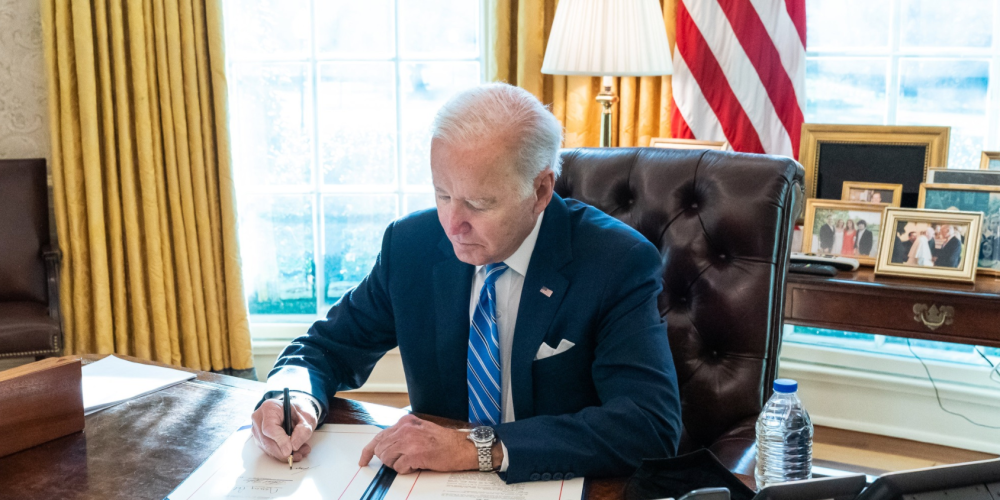Biden Administration Announces Two Major Policies for the Relief of Up to 550,000 Spouses and Children of U.S. Citizens

Biden Administration Announces Two Major Policies for the Relief of Up to 550,000 Spouses and Children of U.S. Citizens
On June 18th, 2024, the Biden administration announced two policies which may help provide
major relief to spouses and children of U.S. citizens.
- The first policy allows undocumented spouses of U.S. citizens who live in the U.S. to apply for “parole in place,” making the path to permanent resident status easier for spouses.
- The second policy makes it easier for individuals with DACA (Deferred Action for Childhood Arrivals) and undocumented immigrants who graduated from college to apply for certain employment-based nonimmigrant visas.
Parole in Place Policy
Generally, individuals who are married to U.S. citizens are eligible for permanent resident status if their spouse applies on their behalf. But this process is more complicated for individuals who are already in the U.S. These individuals would have to leave the country to get permanent resident status. This poses a risk of being barred from reentering the U.S. for approximately 10 years or even permanently. While there is a waiver of this 10-year bar, it is only available to those who can show that their spouse will suffer “extreme hardship.” These waivers take approximately 3.5 years to adjudicate making the process lengthy and uncertain. Biden’s new policy eliminates this risk by allowing individuals in this situation to apply for green cards without leaving the U.S. and with “parole in place.” Parole in place involves granting humanitarian parole to a noncitizen already in the U.S. This is a form of relief that permits an individual who is otherwise impermissible to reside in the U.S. for a period of time to stay in the country without getting deported. Those granted parole may seek work authorization if needed. Approximately 500,000 undocumented spouses of U.S. citizens may qualify for this new policy as well as 50,000 children and stepchildren of U.S. citizens.
Who Qualifies for Parole in Place Under This Program?
The June 18th announcement states that people seeking parole in place must meet the
following standards:
- Have continuously resided in the United States since June 17, 2014.
- Were physically present in the United States on June 17, 2024.
- Have been legally married to a U.S. citizen as of June 17, 2024.
- Entered the United States without admission or parole and do not currently hold any lawful status.
- Have not been convicted of any disqualifying criminal offense (More guidance on this will likely be published by the Biden administration).
- Do not pose a threat to national security or public safety.
- Merit a favorable exercise of discretion (More guidance on this will likely be published by the Biden administration).
- Minor children of the applicant’s U.S. citizen spouse (including stepchildren) will be eligible to apply together with their parents.
Lifting Barriers for DACA Recipients and Undocumented College Students
Biden’s second policy introduces a more straightforward process for individuals granted DACA and undocumented immigrants who have graduated college to apply for work visas like H-1B visas or O visas. According to the American Immigration Council, there are over 400,000 undocumented students enrolled in U.S. colleges and universities in 2021, many of whom are ineligible for DACA. Under this new policy, the Biden administration will instruct the State Department to update its guidance on the issuance of 212(d)(3) waivers. This change is intended to assist DACA recipients and undocumented college students in avoiding the 10-year reentry bar when leaving the U.S. to obtain a work visa. The 212(d)(3) waiver process would enable them to obtain the visa without being subject to the 10-year bar.
Who Are These Waivers Available To?
The 212(d)(3) waivers will be available to current DACA recipients or undocumented immigrants who have graduated college in the U.S. and have received a job offer from a U.S. employer in their field. Applicants will have to provide documentation proving that they meet the above criteria as well as pay a fee. It is not known yet exactly what forms of documentation will be accepted and what the fee will be.
If you have any questions about TPS work authorization and how to apply, you should meet with our New York immigration attorney to go over these options and discuss which might be the better fit for you, given your situation and other various factors.